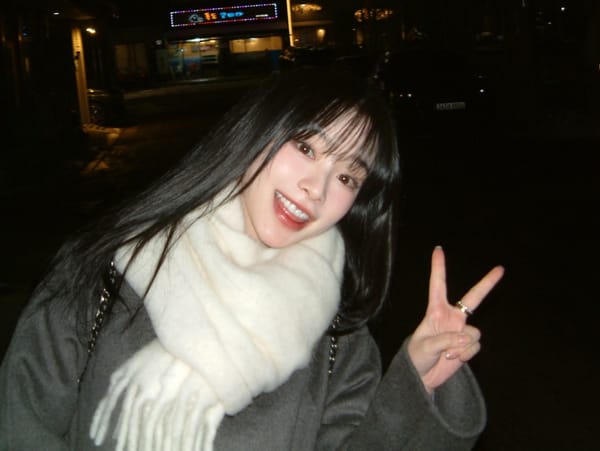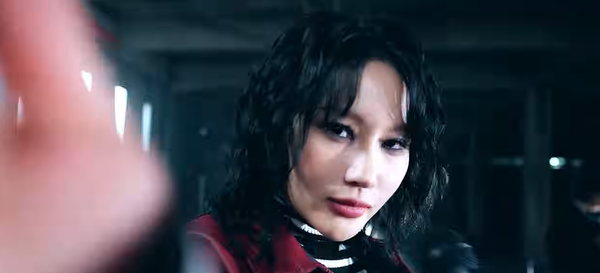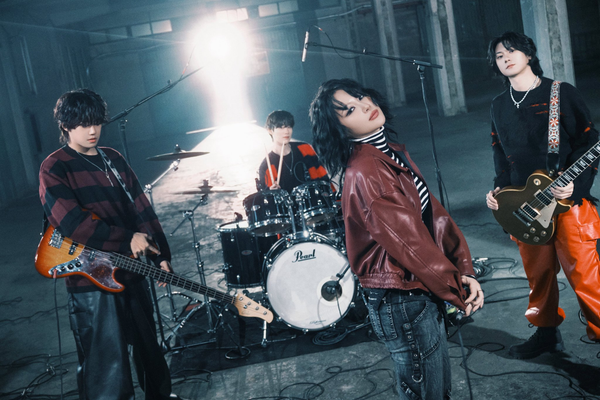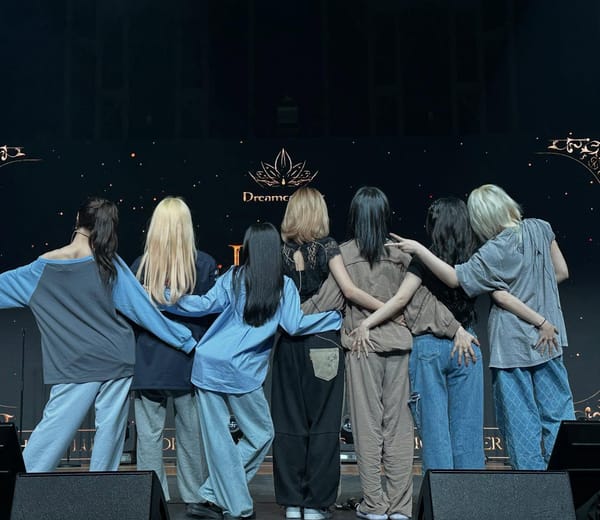Album Review: “Apocalypse: Save Us” Reflects A Mature And Evolved Dreamcatcher Sound
K-Pop —Opinions
K-Pop’s Dreamcatcher has released a full album that shows both individually and as a group how far they’ve come in five years.
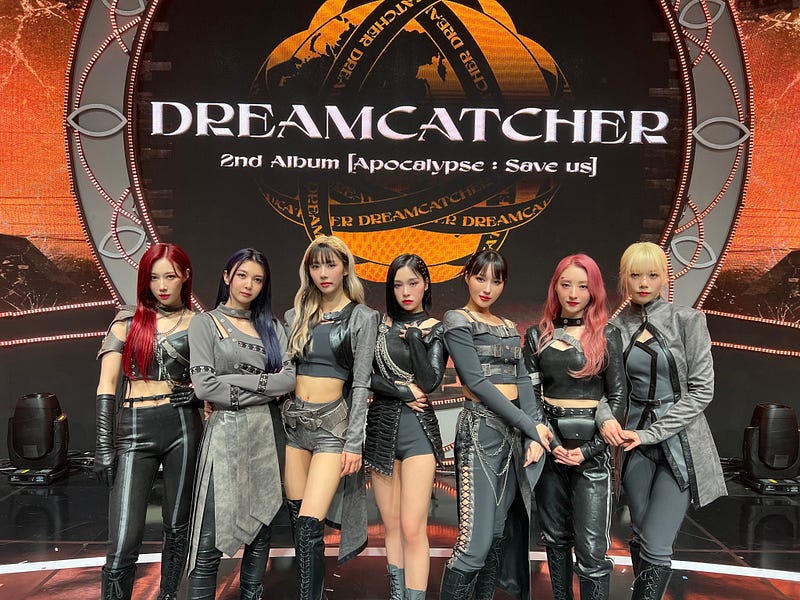
Full albums in K-Pop for a group don’t come often, for a variety of reasons. One of these is the fact that in an industry full of one to three album releases in a year on average, it’s pretty difficult to secure the time and effort it takes to create a full-length album. It’s far preferable to be promoting multiple times a year for little chunks of music for many groups.
The other reason, I believe, is because a full album is meant to be a bit of a milestone, a way to have a more wide-ranging space for K-Pop artists to show off music that they want to explore, how far they’ve come, and for fans to get an extra helping of the sound that they appreciate from them. For Dreamcatcher, I believe this reason is what encapsulates their 2nd Full Album, “Apocalypse: Save Us”.
As the group travels down the road together into their 5th year, their music has changed and evolved over time, a process that arguably started with 2019’s “Raid of Dream” and its hybrid rock/pop/ballad title “Deja Vu”. In more ways than one, 2022’s “Apocalypse: Save Us” is Dreamcatcher saying “this is us, this is our identity, this is our music”, whether that is in seven individual solo songs that they all personally worked on, or in a group sound that has become more far-ranging than their straight up hard rock/pop early days. It’s one that I think makes this album more than anything else a reflection of how far they’ve come, and why on the whole, I enjoy it a lot.
Here’s my thoughts on each track from Dreamcatcher’s 2nd Full Album, reserving the title track, “MAISON”, for last. I’ve provided a handy navigation menu for jumping around.
Album Review Navigation
- Intro: Save Us
- Locked Inside A Door
- Starlight
- Together
- Always
- Skit: The Seven Doors
- Cherry (Real Miracle) (JI U SOLO)
- No Dot (SU A SOLO)
- Entrancing (SIYEON SOLO)
- Winter (HANDONG SOLO)
- For (YOOHYEON SOLO)
- Beauty Full (DAMI SOLO)
- Playground (GAHYEON SOLO)
- MAISON (Title Track)
- A Last Thought
Intro: Save Us
We’re back to named intros, which we haven’t seen in a while for Dreamcatcher. As always, this all-intstrumental track is meant to set the stage and tone for the album to come, though this track shares that responsibility with “Skit: The Seven Doors”, which we’ll get to later.
The two sections of this track, a haunting, Castlevania-like organ piece and a more funky, rock-based interlude pretty much encapsulate my point about this being a reflection of Dreamcatcher’s evolution. While still in a dark concept title track-wise, gone are the days of “gothic horror” music Dreamcatcher and here to stay is the “hard-charging rock/pop hybrid” that their sound has become. The sound effect in between, to me, kind of reflects that, as if it was a changing of tape reels from one to another, both of which are a part of Dreamcatcher’s evolution of musical identity. But because of that, the transition felt a bit more jarring to me, and might have been better if it had been blended together a bit.
Locked Inside A Door
Admittedly, I didn’t really vibe with this track at first, despite it being a favorite track of several Dreamcatcher members. Funky rock and guitar, from a personal standpoint, feels too slow to me with not enough instrumental to really grab hold of me and not let go.
But I came around to this track after getting a chance to see the lyrics and Siyeon’s explanation for this from their mini-concert, where she explains that the track is about “difficult times trying to fit into someone else’s mold” and “throwing away the insecurities attached to those”. This is actually a pretty powerful and topical track as far as this album being about Dreamcatcher’s evolution. A re-debuted girl group that shed the box of being stuck in a generic “cute concept” mold to do their own independent thing makes “Locked Inside A Door”’s funky vibe have a rebellious edge to it, a kind of “you can’t tell me what to do, how to do it, and how to fit in somewhere to succeed” defiance that comes out in the lyrics and the track (there’s even a pseudo-profanity spoken part from an annoyed SuA that is a nice bonus touch), as if she can’t be bothered to be boxed in or trashed for being her own person.
Though there are adversities to overcome being yourself (the chorus frequently talks about criticism like guns or arrows pointed at them), the message is that no matter how much people try to put you into a box they prefer you to be in, be unapologetically yourself. We’ll come back to that theme at the end, but for now, I can say that the message makes me appreciate the much choice just a bit more.
Starlight
Saving “MAISON” for last, we’ll skip ahead to “Starlight”. Ever since the synth pop wave has hit K-Pop, with such earworms like Everglow’s “LA DI DA”, GFriend’s “MAGO”, and Brave Girls’ “Thank You” (just to name a few), I have so very much wanted Dreamcatcher to try their hand at it, just to see what they’d be able to come up with. As an older K-Pop fan I am shamelessly a fan of the old school synth-ness of music from the 80’s, and seeing the genre come back into a music style I follow with modern recording tech has been nothing short of a nostalgia bomb for me.
“Starlight” hits all of those notes for me — it’s fast-paced, with the instrumentation typical of the synth-pop genre but with modern mixing that makes the beat and the synth music stand out. Combine that with every member getting to show off how well their vocals fit in with the beat and 80’s era highs and lows, along with the fact that this is one (of many) musical love letters to fans comparing them to shining stars in the sky, and this is 100 percent my favorite B-Side of the whole album. Of particular appeal to me is the bridge, featuring low-toned vocals from Dami, Handong, and Siyeon that carry the song to its final chorus and end. The only bad thing to me is that it seemed to end too quickly — which of course meant that it was on loop with “MAISON” on many a BUGS stream for me this week.
Together
In another new genre for Dreamcatcher to try, we got Deep House style track “Together” from the group. Dreamcatcher’s been trending towards the club-ish type dance tracks for a while, if bangers like “Silent Night”, “Poison Love”, and “Can’t Get You Out Of My Mind” weren’t any indication. “Together” is Dreamcatcher’s latest foray down this path, and it does its job as far as continuing down that minimal instrumentation, catchy beat track. While a great track, I’d call this on the weaker side of the album’s discography, mostly due to the fact that this is almost not a challenge for Dreamcatcher to tackle with any kind of competence. As a result, there’s not a huge amount of room for unique vocalization or additional color, but that’s more the fault of the genre than anything else — or that could just be me not liking House as much.
Either way, the song’s message of not wanting to lose one’s child-like innocence by reliving cherished memories is nice, and it’s neat to see Dreamcatcher stretch their versatility into yet another type of music. But this is easy mode for them, and the track reflects that.
Always
When it comes to the now-vast pantheon of Dreamcatcher ballads, personally I find it hard to choose one, as they all seem to highlight how talented Dreamcatcher are at singing them even though they are by concept a “darker” group. Still, there are a couple of them that stand out, and have been known to play during particularly feels-heavy moments in Dreamcatcher’s long history, with “Emotion” and “Polaris”, both stand-bys when the group wants to hit you right in the heart.
As this album is about Dreamcatcher’s evolution as a group, in my opinion you can add “Always” to that group. Meant to be sent as a message to a heaven-sent lover according to Gahyeon during the mini concert, this piano-heavy ballad can easily be re-purposed to be sung towards someone special they remember with fondness (such as their fans). The reason I call this an evolution of their ballad style is that the muted and somewhat minimalistic instrumental allows each member to convey just how far they’ve come being able to sing with emotion and feeling. In particular, Dami’s softer high toned voice carries many of the verses, while someone like SuA, known to be more of a power vocal, shows off just how much control she can exhibit in a heavier song. The progress, particularly into the bridge and beyond, is keenly felt and shows just how far Dreamcatcher has come weaving a ballad’s rendition into not just “a slow song” but “a slow song that tells an emotional story or conveys feeling”. Expect this to be in many a concert footage/fan meeting compilation of the company, if not from Dreamcatcher content creators. It’s that good at conveying its vocal color.
Skit: The Seven Doors
Some fans thought that we’d see a funny comedy skit like what was included in older music releases from while a while ago to lead us into the second portion of the album, but what they got instead was an airy, ethereal, and ultimately fast-traveling musical interlude instead. It’s an interesting choice to put into an album, but ultimately makes sense in the fact that there are both group content sections and solo songs, and having something to break up the two prepares you for getting into the second half of things.
I can’t help that this interlude shares a similar title to “Locked Inside a Door”, and I would speculate that this is Dreamcatcher showing you how they’ve broken out of being locked in a single door, to being seven individual artists with their own “doors” leading to rooms of musical talent, to show fans. We’ll get to that theme near the end of this article, but for now, I liked this instrumental for what it was, a nice pallet cleanser with a catchy beat that leads right into the first solo of the album pretty naturally.
Cherry (Real Miracle) (JI U SOLO)
There’s a meme out there from a fan (please reach out to me if you did it so I can credit you, otherwise, thanks murkygalaxy from Dreamcatcher Discord for finding it) that uses the Swole Doge vs. Cheems meme template to make the perfect funny comparison to what other love song composers do vs. JiU composing a love song. Even though JiU’s clearly making a song dedicated to her dog Cherry, the way she’s laid out the composition, the lyrics, and, at least from the mini-concert, the choreography, is perhaps the next evolution of a style JiU has become comfortable with that began with “Dear”, continued into “4 Memory” and bled into “Alldaylong”. That style is making light, airy tunes that have sentimental messages, which is the formula that has made soloist IU so successful in Korea.
I’ll be the first to say that something light and idealistic isn’t quite the genre I reach for when I want to listen to music, but as someone who is also a dog owner, I totally get wanting to make a whole song and choreography to a beloved pet. The happiness and cheer with which this song crafts its message and its music can’t help but make you smile, even if it’s not the type of music you’d normally listen to. Of course, having a giant Cherry in the background of your solo stage probably helps this song be more appreciated for being as adorable as it sounds, but I digress. JiU’s refined the art of the optimistic song, and I look forward to hearing what else she has to release in the coming years.
No Dot (SU A SOLO)
Now, I’ll just set the table here and say that as regular readers know, SuA is my favorite member in Dreamcatcher, and partially for the reason that she’s what I consider to be an “All-Rounder” — someone who has all the skills and personality needed to succeed in the K-Pop industry, in a group or even by oneself. “No Dot” is just one of the most appropriate examples of how SuA exemplifies that label that I attribute to her.
Whether it’s vocals, or rap, or what was easily choreographed into a dance as sharp and intense as she’s ever done (think the “Copycat” cover on steroids), SuA puts her entire skillset on display in “No Dot”, a song that is supposed to emphasize SuA’s duality of fast-paced aggression and slow but inevitable swagger. It’s hard for me to pinpoint the genre here, especially as SuA does double duty singing and rapping, but maybe that was the intention. Of all of the solos, this is one of the faster, rock/electronic heavy ones, and it gets your head moving to the beat faster than you can blink. That’s SuA for you, and I’ll be very interested to hear what she was thinking putting this song together.
Entrancing (SIYEON SOLO)
If you’re listening to the album in order, coming from SuA’s intense “No Dot” it really seems like the brakes get put on you going into Siyeon’s “Entrancing”. I do have to be honest and say this took me a bit by surprise — of all the people who were doing solos, I would think Siyeon would have preferred a more rock track than something slower, like she pursued in solo release “Paradise”. Something like “Good Sera”, for example. It would have been interesting to see something akin to her throwback rock-style cover of Bruno Mars’ “Treasure”.
That said, what we did get here didn’t disappoint. Instead of a straight ballad, I really feel like “Entrancing” is more of a musical elegy, a melancholy, ethereal song that captivates and captures you in its flighty, floating tone. Layered above this is the vocal control and emotional power that we’ve come to expect from Main Vocal Siyeon, singing about loss and memories that she’s trying to ensure she doesn’t forget. There are some major “NieR” OST vibes here, with “Song of the Ancients (Devola/Popola)” and “Weight of the World” most prominent in my mind, both songs that carry with them that sense of haunting, siren-like quality that sings of beauty but also tragedy. That’s what Siyeon’s “Entrancing” delivers to me, which means that calling it just a ballad is, to me, only looking at the surface and not what’s underneath. It’s for me the sleeper hit out of all the solos on the album.
Winter (HANDONG SOLO)
It would be tempting, after hearing such a melancholy track like “Entrancing” from Siyeon, that you’d attribute the same kind of tone to Handong’s “Winter”, and you'd likely be wrong. Genre-wise this song is an R&B tune rather than a ballad, and while some of the topics might be somewhat similar, Handong’s “Winter” talks more directly about both the pain and the cherished memory of a relationship now ended in equal measure. It’s quite a different take, but one more suited to Handong’s lower-toned voice and sometimes straightforward manner.
“Winter”, with its choreographical analogy of a storybook beginning and ending and its stronger, heavier instrumental, seems to be more grounded about the emotions of a breakup. There’s an honest wistfulness to what Handong is singing about as she admits that she doesn’t want to let go of that special someone long gone, but that she feels the memory of them fading as the seasons come and go. There’s a kind of duality in this song on a variety of levels — happiness and sadness, being a couple and being alone, and, appropriate to the song, ice and fire that encompasses what’s come and gone, and having the song be R&B allows for the backing track to give more foundation to Handong’s mostly higher notes here. The cherry on top is that the song is bilingual — Handong drives the point home by ending it in her native Chinese, showcasing both her language mastery and the importance of the message she’s sending in that it needs to be said two different ways. It’s the longest solo on this album for a reason, and I enjoyed it quite a bit.
For (YOOHYEON SOLO)
The Highlight Medley gave a little tease as to what this song would be — an all-English Jazz/Lounge tune with a bit of elegance and those traditional Yoohyeon Lead Vocalist chops. What we got when fans got to listen to “For” in full was that and certainly more, a self-explained love letter to fans in a 1950’s era tempo and tune that had charm and, well pizazz (a very 50’s term if I say so myself).
Besides the fact that Yoohyeon is expressing her sincere thankfulness and love to Dreamcatcher fans, this is honestly the culmination of an improving English diction from her that started with her “Secret Love Song” cover seemingly an eternity ago, continued onward through other Special Clips like “2002” and “Mood”, and arrived finally at “For”. As someone doing the reverse (learning Korean as a native English speaker) I know fairly well how hard it is to switch things up to speak properly, and Yoohyeon’s progress has been amazing to see, giving her a versatility for content that “For” is just the latest iteration of. Combine that with how light and sweet-sounding the overall song is and you have a recipe for an appreciation song that continues to make Yoohyeon one of K-Pop’s most relatable idols for fans.
Beauty Full (DAMI SOLO)
Punk Pop is coming back into style, especially in the K-Pop industry, and Dami’s chosen track, “Beauty Full” adds to the trend with style, attitude, and most importantly, reassurance and encouragement. Dami states that “Beauty Full” is about not losing confidence in yourself, looking yourself in the mirror and saying that you are worthwhile and can do anything. It’s a very Dami-esque thing to say, in my opinion, as her tendency to be Dreamcatcher’s practical foundation and steady rock lend themselves to being protective and helpful to them as well.
Lots of fans I’ve seen love this track for so many reasons — it carries more of the pure rock sound of early Dreamcatcher, it’s a surprise from a Main Rapper that people thought might choose something of a hip hop or straight rap song to compose and sing, and it’s also nostalgic, a throwback to the Avril Lavigne-ish unapologetic punk attitude of tracks like “Sk8er Boi” and “Complicated”. I agree with the fact that this is a nice surprise and it is definitely a throwback, but not, perhaps that this was unexpected from Dami. The feel-good recent track “New Days”, composed by her, is very much in the rock genre, and as a self-described Girls’ Generation SONE, “Beauty Full” also has potential influence from more encouraging rock-like SNSD tracks like “Way To Go” and “Flyers”. Taken in this context it is completely understandable why “Beauty Full” and its message of peppy “get up and stop being sad” energy is a worthy descendent.
Playground (GAHYEON SOLO)
At first listen (or at first glance, if you managed to see her solo performance stage at the album release mini-concert), you might think that “Playground” is your standard cutesy maknae-type song, and on some level you’d probably be somewhat right. While Gahyeon has certainly done more mature performances (the famous “Adult Ceremony” fanmeet clip or 2020 Seven Spirits Concert performance of “Bloom” come to mind), she’s not afraid to go back to youthful, fresh presentation that has come up in the form of covers like “Vanishing Paycheck”.
But “Playground” is just a bit more than its happy tone and young-ish-sounding title would suggest. The idea behind the song, according to Gahyeon, is to remember not so much childhood or literal playgrounds but younger days when the world was a playground and you were more carefree with less responsibility. It’s a fun dance type song that completely fits Gahyeon not because she’s the youngest, but because she recognizes what it means to be young and to remember that fondly. Ironically, “Playground” is what Gahyeon’s singing (and now composing) style has grown up and matured into — a pleasantly higher-toned voice match with a ton of visual expression that goes far beyond the trademark eyebrow raises she has tended to throw into her expressions the past few years. We don’t see nearly as many Special Clips from Gahyeon as we do from everyone else, so hopefully “Playground” being so well-received will encourage her to do more.
MAISON (Title Track)
Either you ran through every other song review or you skipped ahead, but we’re finally here at “MAISON”, the title track for “Apocalypse: Save Us”. I have to say, based on this era’s pre-comeback schedule and releases, I wasn’t quite sure what to expect from this song. Part of the reason for that was the fact that Dreamcatcher and Dreamcatcher Company have been extremely coy about the reveals — there were no “accidental” spoilers, no big giveaways from the teasers besides the chrous and a few snippets from unidentified portions of the song, and most importantly, no notion of what style the song might come in. This led some in the fandom to come to some conclusions about what “MAISON” might sound like, but as far as I’m concerned, I’ve always been a “wait and see” person in my 11 or so years as a K-Pop fan.
Companies have a way of subverting expectations when it comes to teasers (because, by definition, that’s what they are), and even Dreamcatcher Company has done this as recently as 2020’s “BOCA”, a song that if you only went by the previews and that it was set to be a “moombahton/rock” hybrid, would be light and not as hard-charging rock. The results spoke for themselves, as “BOCA”, as of this writing, still remains Dreamcatcher’s most-viewed music video to date. It definitely proved some fans wrong when it finally released.

This, I think, is what happened with “MAISON”, and while I can only speak for myself as to how that subversion of expectations worked on me, I can give you this context. Since 2018, Dreamcatcher’s “YOU AND I” has been the #1 on my list of Dreamcatcher title tracks — it has the right mix of prop use, layered and beautiful choreography, rock/pop aggression, and story-telling expansiveness that makes it one of the group’s iconic songs, and part of the reason why it was received so well at KCON LA 2018, when the group had a much smaller footprint but a different and intriguing concept to potential fans.
For me, “MAISON” has unseated “YOU AND I” on that list, and is now #1, after the latter survived many excellent Dreamcatcher songs and the entire Dystopia trilogy. It’s that good to me, and here’s essentially why — it’s to me a combination and culmination of everything Dreamcatcher was and is, all wrapped up into one package.
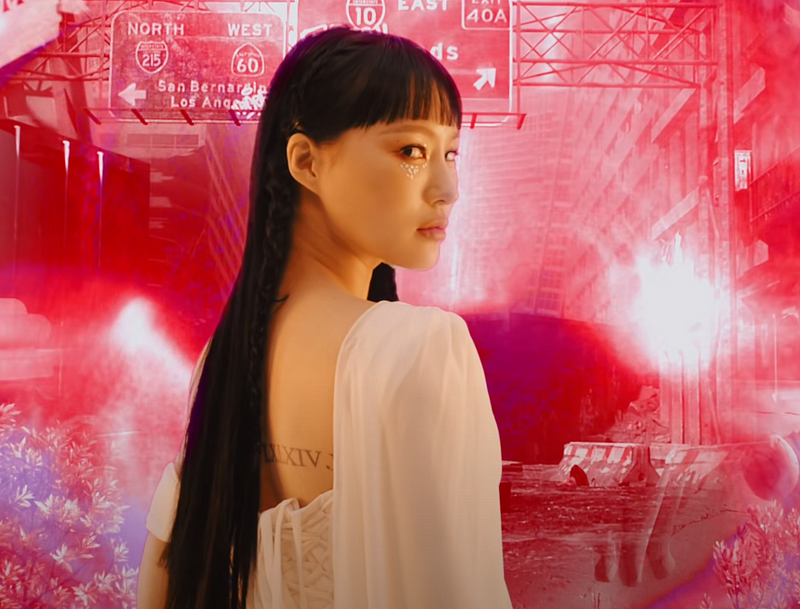
Musically, the blend of electronic rock fits both the group’s early pure rock image and later electronic/pop additions. It charges hard from the beginning and doesn’t let go, with a bass line and guitar that set the stage and a chord progression into the pre-chorus that is unforgettable and gets you jamming. It has sections that combine the haunting melodies and guitar-charged instrumentals of old with the EDM and Numetal inclusions in recent releases. And it tries new things, with a double bridge into an outro using, of all things, Gregorian-style chant backing a final, explosively fueled plea for help from the divinely-powered characters Dreamcatcher embodies (we’ll be hearing “LA MAISON LA LA LA MAISON” in our heads for a long time to come, I think).
Visually, we have plenty to take in, representative of the years Dreamcatcher has been active. It’s worth mentioning I don’t subscribe to the theories out there that the stories are connected — especially when we have direct quotes from the members stating that not all of them are and that they come in threes — but there are stylistic callbacks to the Dreamcatcher comebacks of old, from showing the characters the members are playing as otherworldly or spiritual, to having them set themselves in a dystopian-like apocalypse of a landscape, to speaking a message addressing social issues such as climate change and caring for the planet. The CG, at times seemingly obvious, lends itself to the sense of unreality (and is a bit of a callback to the early 2000’s graphical presentations of old complete with musical style).

And finally, we have the members of Dreamcatcher themselves, who in turn have all shown just how far they’ve come in the last 5 years with “MAISON”.
- JiU still possesses a reliable visual but now anchors many verses and bridges with her voice and stage presence.
- SuA, aside from offering a obvious and sharp presence as Dreamcatcher’s Main Dancer, is an all-rounder who can slot in anywhere and do almost anything.
- Siyeon vocal power as the Main Vocal of Dreamcatcher is now paired with a control that allows her to sing both emphatically and delicately depending on the occasion
- Handong’s confidence in herself and her skill is on full display as she creates some of the most memorable visuals, choreography, and singing lines
- Yoohyeon’s multilingual talent lends itself to many song parts and her reliable Lead Vocal talent (often paired with Siyeon to pack punches into songs) is now joined by an improved choreography execution that frames many dances
- Dami’s rhythm and flow as Main Rapper has become a cornerstone of many Dreamcatcher songs, with fans in awe of her aggressive delivery
- Gahyeon has matured into a versatile artist able to provide an expressive visual, slot in as a central focus for many of the song’s refrains, and generally make people forget she’s the youngest in the group
On all levels, “MAISON”, to me, shows Dreamcatcher at its most evolved and mature to date — a combination rock/pop style able to integrate any other genre into it for innovative sound, seven members who have used the last five years to create their own distinct styles and contributions to the title tracks, and intriguing storylines that have spawned countless theories and plenty of analyses about what the videos have been saying. This sense of maturation is why “YOU AND I” finally falls from its perch to me, and why “MAISON” (at least for now) takes its place.
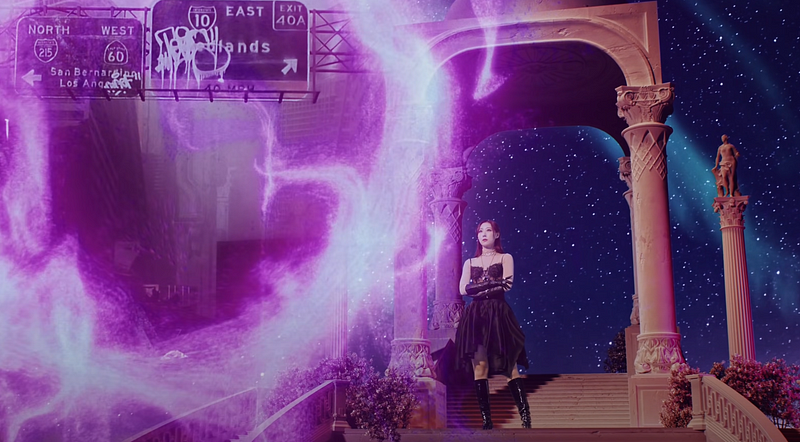
A Last Thought On Apocalypse: Save Us
One thing I’ve noticed that has been rolling around in the places where I run in K-Pop is the notion that “Apocalypse: Save Us” is a departure from the Dreamcatcher of old — perhaps too far, maybe — and that it isn’t Dreamcatcher, implying that it isn’t the pure rock group that people got into back in the day. While I understand why people might feel this way, especially if they are a long time fan who may have gotten into them during the early days of their struggle to be recognized for their unique concept and music, I can’t really disagree more.
The reason is basically the theme that I’ve tied this article together with — that this is agroup that is evolved and matured over their five years being active. To me, this is Dreamcatcher, and this is their identity. Whether or not you like or agree with what that identity is, is up to you who are reading, but make no mistake about it — there isn’t anything about this that isn't Dreamcatcher (as if seven solo projects with song genres hand-picked and produced by the members themselves didn’t make that obvious).
Music and musical artists evolve over time, and no group or soloist who is as long in the industry as Dreamcatcher is stays the same or stagnant. Dreamcatcher’s sound has been added to, tweaked, adjusted to deal with how the members have matured vocally, from a dancing standpoint, and visually, and the space of a 2nd Full Album gives us the means to see this on a wide spectrum of levels. Ultimately, this is why even though I have some tracks that I may like more than others, that I find myself with a heavily favorable view of the music this time around. Five years in, this is Dreamcatcher at its most versatile, talented form yet, and I look forward to how that changes and matures even more for subsequent releases.

